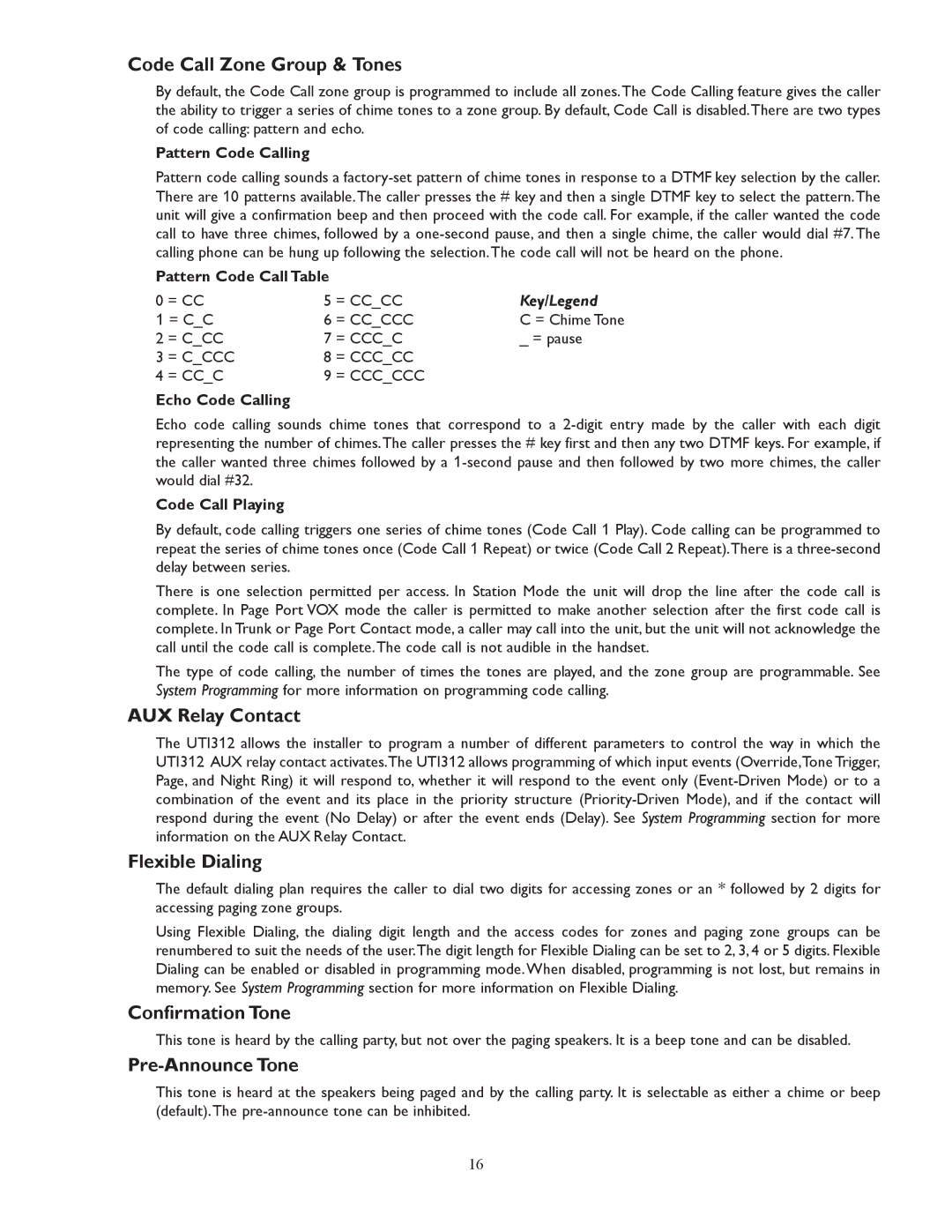Code Call Zone Group & Tones
By default, the Code Call zone group is programmed to include all zones.The Code Calling feature gives the caller the ability to trigger a series of chime tones to a zone group. By default, Code Call is disabled.There are two types of code calling: pattern and echo.
Pattern Code Calling
Pattern code calling sounds a
Pattern Code Call Table
0 | = CC | 5 | = CC_CC | Key/Legend |
1 = C_C | 6 | = CC_CCC | C = Chime Tone | |
2 | = C_CC | 7 | = CCC_C | _ = pause |
3 | = C_CCC | 8 | = CCC_CC |
|
4 | = CC_C | 9 | = CCC_CCC |
|
Echo Code Calling
Echo code calling sounds chime tones that correspond to a
Code Call Playing
By default, code calling triggers one series of chime tones (Code Call 1 Play). Code calling can be programmed to repeat the series of chime tones once (Code Call 1 Repeat) or twice (Code Call 2 Repeat).There is a
There is one selection permitted per access. In Station Mode the unit will drop the line after the code call is complete. In Page Port VOX mode the caller is permitted to make another selection after the first code call is complete. In Trunk or Page Port Contact mode, a caller may call into the unit, but the unit will not acknowledge the call until the code call is complete.The code call is not audible in the handset.
The type of code calling, the number of times the tones are played, and the zone group are programmable. See System Programming for more information on programming code calling.
AUX Relay Contact
The UTI312 allows the installer to program a number of different parameters to control the way in which the UTI312 AUX relay contact activates.The UTI312 allows programming of which input events (Override,Tone Trigger, Page, and Night Ring) it will respond to, whether it will respond to the event only
Flexible Dialing
The default dialing plan requires the caller to dial two digits for accessing zones or an * followed by 2 digits for accessing paging zone groups.
Using Flexible Dialing, the dialing digit length and the access codes for zones and paging zone groups can be renumbered to suit the needs of the user.The digit length for Flexible Dialing can be set to 2, 3, 4 or 5 digits. Flexible Dialing can be enabled or disabled in programming mode. When disabled, programming is not lost, but remains in memory. See System Programming section for more information on Flexible Dialing.
Confirmation Tone
This tone is heard by the calling party, but not over the paging speakers. It is a beep tone and can be disabled.
Pre-Announce Tone
This tone is heard at the speakers being paged and by the calling party. It is selectable as either a chime or beep (default).The
16
